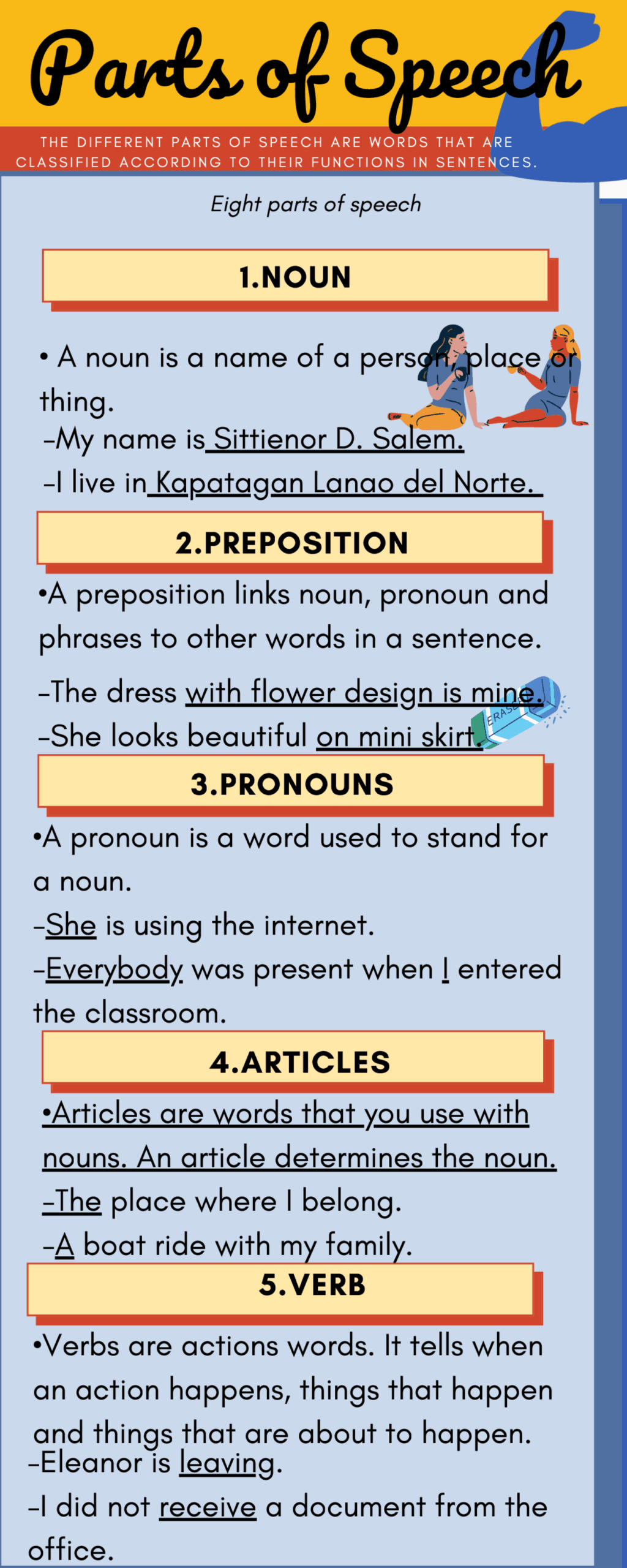When it comes to understanding the English language, one must have a firm grasp on the different parts of speech. Nouns, verbs, adjectives, adverbs, and pronouns are the building blocks of sentences, allowing us to communicate effectively and clearly.
Each part of speech plays a unique role in the structure of a sentence, and knowing how to identify and use them correctly can greatly improve your writing and communication skills. Let’s delve deeper into the world of nouns, verbs, adjectives, adverbs, and pronouns.
Nouns, Verbs, Adjectives, Adverbs, and Pronouns
Nouns: Nouns are words that represent people, places, things, or ideas. They can be concrete (such as “book” or “tree”) or abstract (such as “love” or “happiness”). Nouns can also be categorized as common or proper, singular or plural, and countable or uncountable.
Verbs: Verbs are action words that show what the subject is doing. They can also express a state of being or a relationship between the subject and an object. Verbs can be categorized as transitive or intransitive, regular or irregular, and finite or non-finite.
Adjectives: Adjectives are words that describe or modify nouns or pronouns. They provide more information about the noun or pronoun, such as its size, color, shape, or condition. Adjectives can also be categorized as attributive or predicative.
Adverbs: Adverbs are words that modify verbs, adjectives, or other adverbs. They provide information about how, when, where, or to what extent something is done. Adverbs can also be categorized as manner, time, place, frequency, or degree adverbs.
Pronouns: Pronouns are words that replace nouns in a sentence. They can refer to a specific person, thing, or idea without having to repeat the noun. Pronouns can be categorized as personal, demonstrative, relative, interrogative, indefinite, or reflexive.
Understanding the roles and functions of nouns, verbs, adjectives, adverbs, and pronouns can help you construct clear and coherent sentences. By mastering these parts of speech, you can enhance your writing skills and effectively communicate your ideas to others.
Closing Thoughts
Next time you sit down to write, pay attention to the nouns, verbs, adjectives, adverbs, and pronouns you use. By understanding their roles and functions, you can create more engaging and impactful sentences that effectively convey your message. Embrace the power of language and let your words shine!
